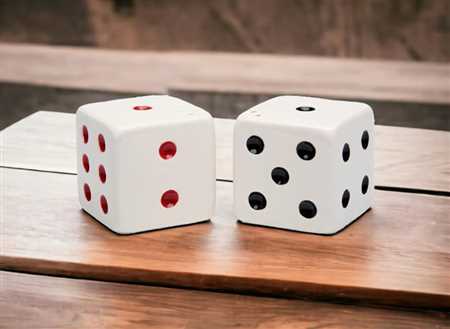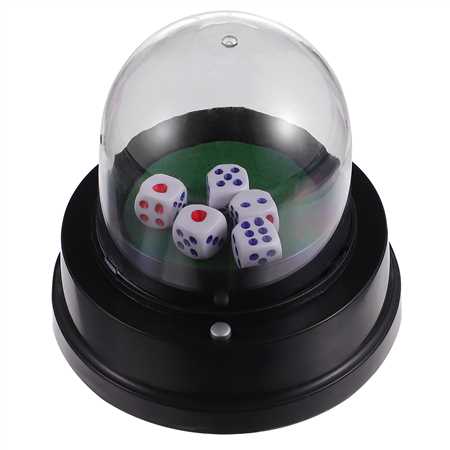

Engaging in a captivating activity that merges strategy and excitement can lead to unforgettable moments. By anticipating results of random events, participants immerse themselves in a challenge that tests their intuition and analytical abilities. This particular endeavor invites players to tap into their instincts while enjoying an invigorating atmosphere filled with suspense.
With each roll or shake, a sense of unpredictability fills the air, igniting a desire to speculate on what might happen next. Individuals from various backgrounds can come together, united by their enthusiasm for uncertainty and their eagerness to showcase their skills. In this environment, connections are forged, and memories are created, as everyone shares in the excitement of what lies ahead.
Join in this enchanting journey where chance reigns supreme, and every moment holds the potential for surprise. Let imagination run wild as participants navigate through twists and turns, all while enjoying the camaraderie and thrill of competing against one another. It’s not merely a game; it’s a celebration of luck, skill, and friendship.
Engaging in a game involving chance can ignite a sense of anticipation and exhilaration. The uncertainty of outcomes creates an electric atmosphere, where players ponder and strategize. Embracing this thrilling moment allows enthusiasts to not just play, but also to connect with the essence of unpredictability.
Making predictions before a roll becomes an integral part of the fun. Each shake brings with it a wave of suspense, as participants hold their breath, hoping for favorable results. This element of guessing can transform a simple game into an exhilarating experience that captivates both seasoned players and newcomers alike.
Whether competing against friends or enjoying solitary practice sessions, forecasting the results adds another layer of engagement to any array of games. Each roll can either bring joy or disappointment, encouraging players to refine their intuition and sharpen their analytical skills. Uncovering patterns and formulating strategies based on previous plays enhances not only individual enjoyment but also fosters deeper connections among players.
Embarking on this exciting journey involves a few straightforward steps that anyone can follow. It’s essential to familiarize yourself with the fundamentals and have a clear understanding of what lies ahead. Here, we will outline the necessary preparations to ensure a smooth and enjoyable experience.
First and foremost, gathering the right materials is key. You will need an appropriate set of tools for engagement. Below is a simple table showcasing essential items you should consider:
Once equipped, gather your friends and set a date for your first session. Enjoying the activity together enhances the excitement and creates memorable moments. Remember to keep an open mind and embrace the unpredictability that comes along with it.
This section outlines fundamental guidelines that govern gameplay and decision-making. Understanding these principles is crucial for players to engage effectively and enjoy the activity.
Objective: Determine main aim players strive to achieve during their participation.
Setup: Outline initial arrangements, including any necessary equipment and player organization.
Turns: Explain how participants take turns, including order and timing of actions.
Scoring: Provide details on how points are awarded or calculated based on results.
Winning: Define conditions under which a player is declared victorious, including any end-game scenarios.
Familiarity with these core concepts enhances engagement and ensures everyone has an enjoyable experience during the activity.
To fully engage in this exciting activity, certain items are essential for an enjoyable and smooth experience. Collecting appropriate tools not only enhances participation but also ensures a challenging game for all involved.
Dice: A variety of dice, including standard six-sided ones and specialty types, can add depth to the play.
Shaking Mechanism: A sturdy container or shaker is crucial for mixing and rolling the dices effectively.
Score Sheets: Keeping track of results requires paper or digital scorekeeping tools to facilitate easy recording.
Pens or Pencils: Great for noting down scores or strategies during play sessions.
Players: Gather a group of friends or family to join in on the fun, as more participants create greater excitement.
With these tools in hand, participants will be well-prepared for a rewarding and dynamic gaming experience.
Improving one’s ability to forecast random events involves understanding patterns and employing strategic thinking. By honing certain approaches, individuals can enhance their predictive skills and increase their chances of success. Below are some valuable recommendations for refining your prediction techniques.
By integrating these tips into your approach, you can elevate your predictive skills and enjoy a more rewarding experience in forecasting activities.
Identifying trends and repetitions within random or seemingly unpredictable scenarios can significantly enhance one’s strategic thinking. Observing recurring sequences often leads to insights that can inform decision-making processes, especially in environments characterized by chance.
When analyzing results, it is vital to organize data effectively. Presenting information clearly allows for a more profound understanding of potential correlations. Below is a sample table demonstrating how patterns might emerge from a data set:
By studying this data, one can begin to detect potential regularities or anomalies. These insights may contribute to formulating predictions, enhancing anticipation of what may unfold under similar conditions.

Understanding likelihood can unlock insights into various scenarios involving chance. By analyzing past occurrences and employing statistical methods, one can make informed predictions regarding future events. This mathematical discipline serves as a foundation for decision-making in uncertain environments.
Fundamental concepts in probability include:
Experiment: An action or process that leads to one or more outcomes.
Outcome: A possible result of an experiment.
Event: A set of one or more outcomes.
To assess likelihood quantitatively, consider the following steps:
Identify the experiment and its possible outcomes.
Determine the total number of outcomes.
Evaluate the desired event’s occurrence based on the outcomes.
Calculate the probability using the formula: P(Event) = Number of favorable outcomes / Total number of outcomes.
By utilizing probability, individuals can enhance their capability to navigate situations influenced by randomness. This analytical approach fosters strategic thinking and can be applied in fields ranging from gaming to finance.